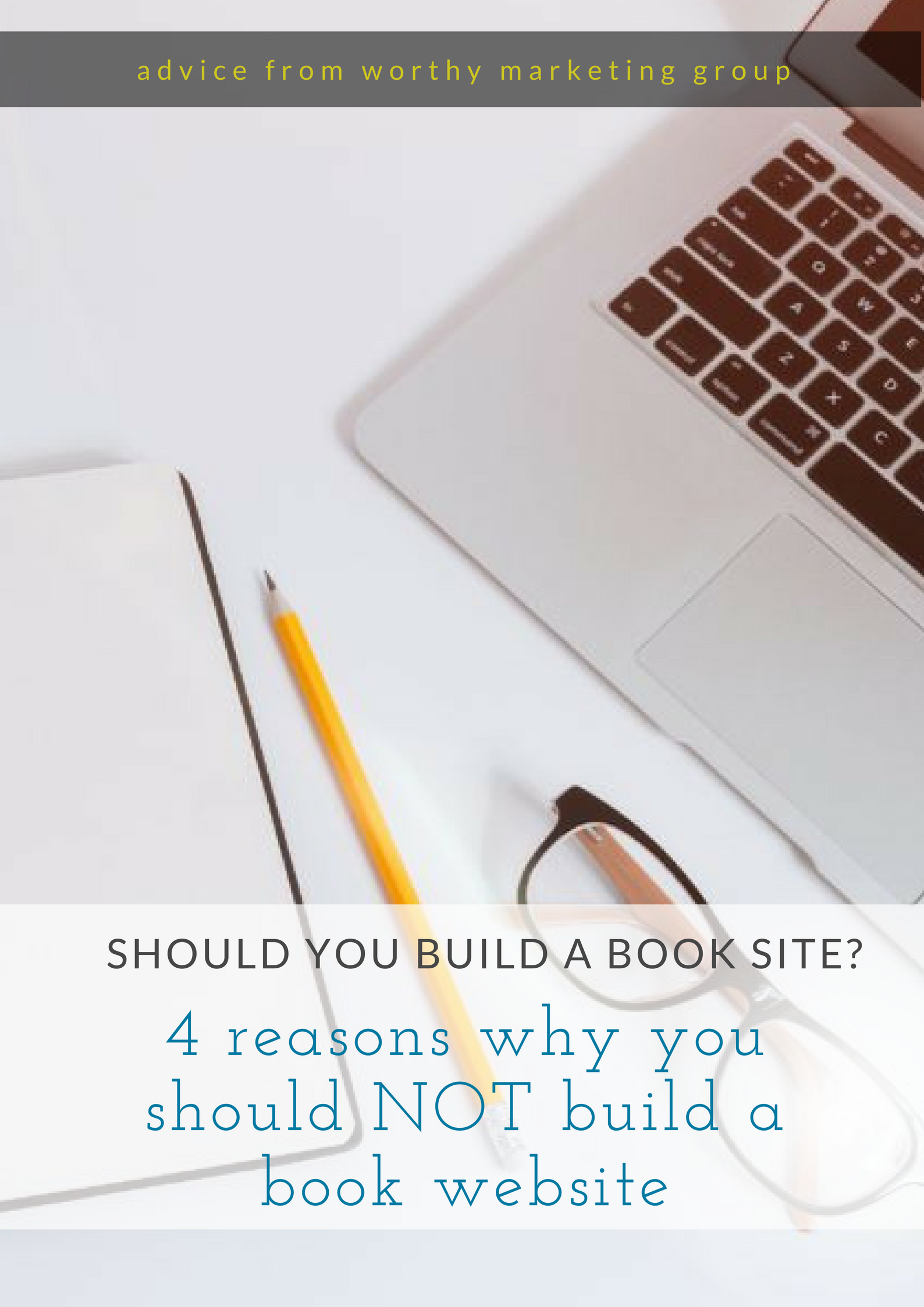In the last week alone, I’ve had two conversations with potential clients about their desire for a standalone book “microsite” for their upcoming book launch. To be clear — your book does need an online “home” aside from its listing on book retailer sites like Amazon, Barnes & Noble, etc. And, while I understand the thinking and temptation to pursue the strategy of building a separate website, we advise our clients against this decision for four key reasons:
- You don’t need another site to maintain. Chances are, you already have a website for your business that may or may not contain a blog, a listing of your services, etc. To build an entirely new site from scratch (even if it’s just a couple of pages), still requires new design, new development, ongoing updates, hosting costs, etc. It’s just not worth the time and investment from our perspective because…
- Books have a lifecycle. While your book may be evergreen in content, the “buzz” surrounding your book will wax and wane after its release. Traffic will undoubtedly be heavier leading up to and immediately following your release, but then drop significantly as media, etc. fades. So, while you may intend to add media hits to this site, it will become stagnant fairly quickly as buzz dies down.
- SEO (Search Engine Optimization). There are several factors that influence your site’s ranking in search engines — four of those factors are keywords, age of the site, the size (numbers of pages/posts indexed with search engines) of your site, and traffic. When you build a book microsite, you are working harder to obtain that SEO “juice” because the site will be brand new, by nature it will only have a couple of pages, any keywords you’re optimizing will have more competition, potentially even competing against your own, larger, business website…and it’s a new site you’ll be working to point traffic toward.
- Disconnection from your larger business. This may be the most important reason of all. When you build a site separate from your current business site or blog, you’re missing out on the greater potential for exposure of your larger brand, your services offerings, and therefore, more business! When people land on a book page that contains a menu bar for other options, it gives them an opportunity to click through to learn more about the author, their work, other resources, etc.
So, what’s the best approach?
build a book page on your current website
Allow the page to inherit the overall navigation of your larger business site, benefit from the site’s SEO, educate people on your larger brand, etc. You can still design a fresh “look” for this book page that is different and yet complements the overall look & feel of your current site.
And, you can still purchase a domain name for your book that redirects to the page on your current website. This way, you can publicly display the book name URL (nameofbook.com), which is likely cleaner and less clunky than www.domainname.com/bookname in social media, etc. while maintaining the page on a site you’re already regularly updating, pointing traffic toward, etc.
What elements should you include on your book page? Look for this info in an upcoming post! 🙂
Like what you’re reading? Then opt-in to get the Worthy Wednesday newsletter, a monthly update featuring the latest tips and tricks to help you get your Worthy message out to the world.



Trackbacks/Pingbacks